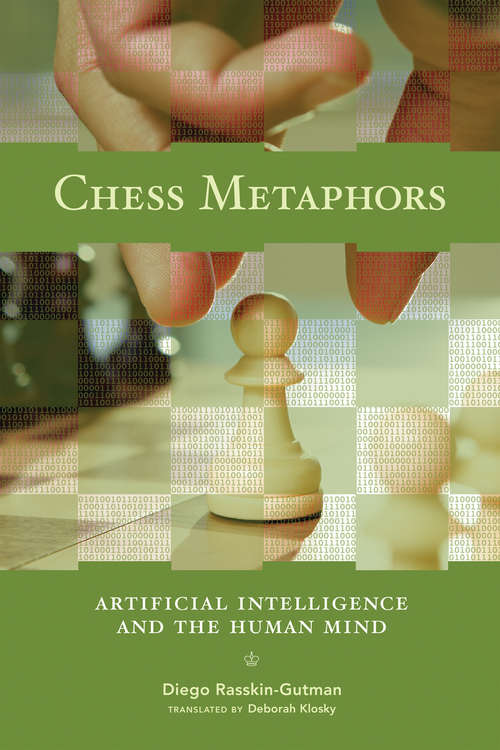Chess Metaphors: Artificial Intelligence and the Human Mind
By:
Sign Up Now!
Already a Member? Log In
You must be logged into Bookshare to access this title.
Learn about membership options,
or view our freely available titles.
- Synopsis
- How the moves of thirty-two chess pieces over sixty-four squares can help us understand the workings of the mind. When we play the ancient and noble game of chess, we grapple with ideas about honesty, deceitfulness, bravery, fear, aggression, beauty, and creativity, which echo (or allow us to depart from) the attitudes we take in our daily lives. Chess is an activity in which we deploy almost all our available cognitive resources; therefore, it makes an ideal laboratory for investigation into the workings of the mind. Indeed, research into artificial intelligence (AI) has used chess as a model for intelligent behavior since the 1950s. In Chess Metaphors, Diego Rasskin-Gutman explores fundamental questions about memory, thought, emotion, consciousness, and other cognitive processes through the game of chess, using the moves of thirty-two pieces over sixty-four squares to map the structural and functional organization of the brain. Rasskin-Gutman focuses on the cognitive task of problem solving, exploring it from the perspectives of both biology and AI. Examining AI researchers' efforts to program a computer that could beat a flesh-and-blood grandmaster (and win a world chess championship), he finds that the results fall short when compared to the truly creative nature of the human mind.
- Copyright:
- 2009
Book Details
- Book Quality:
- Publisher Quality
- Book Size:
- 232 Pages
- ISBN-13:
- 9780262258425
- Related ISBNs:
- 9780262182676
- Publisher:
- MIT Press
- Date of Addition:
- 08/10/20
- Copyrighted By:
- Massachusetts Institute of Technology
- Adult content:
- No
- Language:
- English
- Has Image Descriptions:
- No
- Categories:
- Nonfiction, Technology, Psychology
- Reading Age:
- 18 and up
- Submitted By:
- Bookshare Staff
- Usage Restrictions:
- This is a copyrighted book.
- Translator:
- Deborah Klosky
